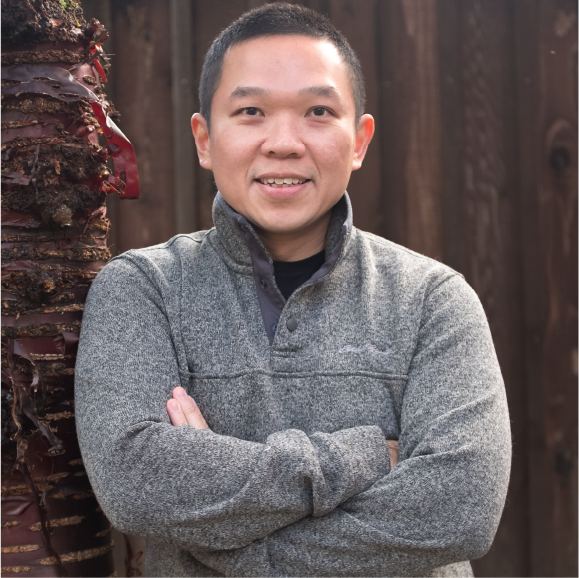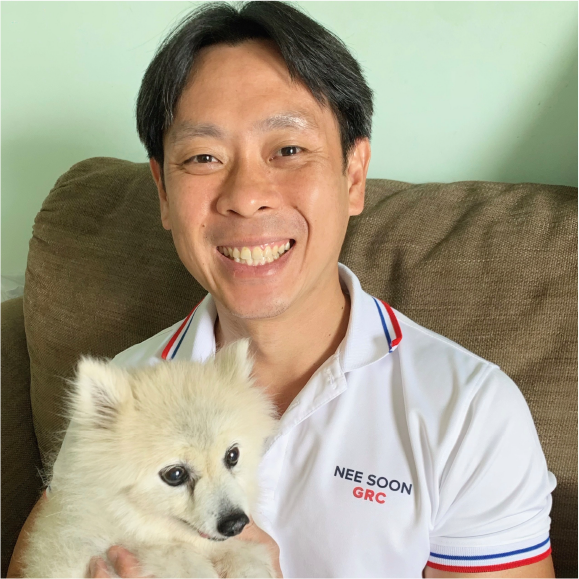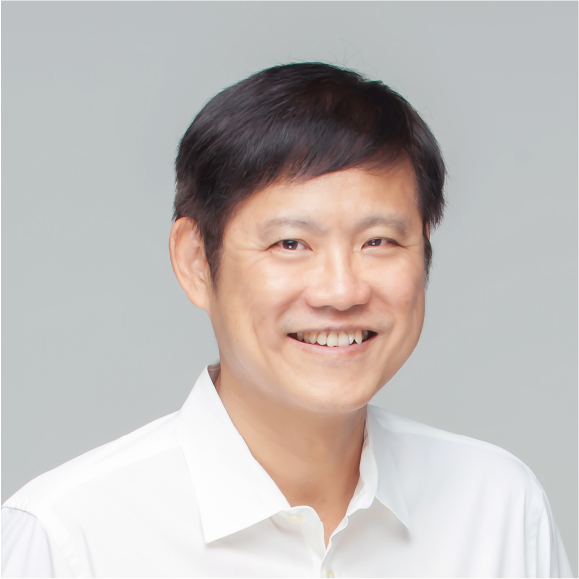Dean's Message
The Faculty of Science has shaped Singapore’s scientific landscape for many years and this year, we continued to stay the course in our pursuit of excellence in spite of pandemic disruptions.

Play Video
Shaping Future Talent
In December 2020, we launched the College of Humanities and Sciences (CHS), together with the Faculty of Arts and Social Sciences, to offer more flexible, broad-based and interdisciplinary learning. This is part of our ongoing efforts to continually redesign and enhance our transformative undergraduate curriculum for market relevance.
CHS students can pursue breadth and depth by combining academic programmes offered by both faculties and beyond. This new interdisciplinary approach breaks down boundaries and integrates knowledge across disciplines, which better prepares our students to solve complex problems.

We also expanded our suite of academic programmes. This year, we launched two Cross-Disciplinary Programmes as well as new second majors, minors and specialisations, a new Scientific Inquiry module and Common Curriculum pillars to impart essential skills and intellectual foundations.
In postgraduate education, we are focusing on developing programmes for professionals who wish to upskill for the workplace. We rolled out four new practice-oriented Master’s (MSc) by coursework degrees, and we now offer a comprehensive suite of more than 10 MSc programmes which drew over 4,000 applications.
We continued to broaden our Continuing Education and Training (CET) offerings as stackable modules that lead to certificates, graduate diplomas and Master’s degrees. Our new offerings include Graduate Certificates in Biodiversity and Conservation, Biotechnology, Chemical Sciences, Physics for Technology, and Statistics as well as Data Science and Data Analytics short courses for working professionals.
“I feel a great sense of pride as we stayed the course in our pursuit of excellence in spite of pandemic disruptions. Moving ahead, we will continue to enhance transformative learning opportunities for our undergraduates, expand our postgraduate and adult learning programmes and push the boundaries of scientific inquiry and research for greater impact.”
Shaping Future Solutions
Beyond academic excellence, our research focused on creating value and impact to address real-world problems. Our research led to patents and translational outcomes as we strengthened existing partnerships and ventured into new collaborations with industry.
For instance, we are working closely with international energy giant Shell to jointly develop novel processes to convert carbon dioxide into cleaner fuels and useful chemicals. Our recently founded Centre for Nature-based Climate Solutions is rapidly gaining recognition as a focal point for research, thought leadership and education on climate mitigation and carbon neutrality in the Asia Pacific.


From advanced materials to alternative proteins, COVID-19 solutions, food valorisation, personalised nutrition and medicine, and urban farming, various graduate PhD students have successfully brought their innovations to the market by setting up deep technology enterprises under NUS’ Graduate Research Innovation Programme.
I am pleased to note that creative ground-up projects by nine graduate teams emerged winners under NUS’ Resilience and Growth (R&G) Innovation Challenge for their potential to address various societal issues. With R&G funding, they are now working to turn their ideas into reality.

Shaping Future Society
Our faculty, students and alumni continue to make a positive impact on society through various contributions. For instance, three of our distinguished alumni speak up for various causes in Parliament, thereby contributing towards more robust public policy debates.

Nominated Member of Parliament
Life Sciences

Member of Parliament (Nee Soon)
Life Sciences

Member of Parliament (Ang Mo Kio)
Mathematics and Economics
We continued to build on our regional engagement programme to promote Science, Technology, Engineering and Mathematics (STEM) learning to educators and students despite the pandemic. This year, we held our first workshop on nanotechnology for young educators in Southeast Asia, and webinars covering pedagogical and research insights under the Temasek Foundation-NUS STEM for University Educators Programme in ASEAN.

The Lee Kong Chian Natural History Museum collaborates actively with partner institutes regionally and internationally to advance biodiversity education and research. We conduct joint surveys, expeditions and projects with colleagues from Asia, Europe, Australia and the Americas. Our collections are used extensively by scientists and students around the world.
I am proud to note that various student leaders have stepped up to rally and support the student community during COVID-19, for instance, by standing with those in need of mental health support or helping peers on overseas exchange to return home during the pandemic. Our Science family also continued to help disadvantaged communities affected by the pandemic.
2021 and Beyond
This year saw several new Deanery and Headship appointments. This further strengthens our leadership bench, even as we step up efforts to enhance our strengths in future-focused teaching, learning and research for greater impact.
In the year ahead, we seek to expand our repertoire of experiential learning opportunities, for instance, with a new Career Readiness Roadmap which prepares students for their careers. On other fronts, we continue to push the boundaries of fundamental knowledge, encourage translational research to benefit society, expand industry-relevant MSc programmes and develop CET offerings for markets where science can make a difference.
I feel a great sense of pride as our Science family overcame pandemic challenges together and I look forward to working with all of you as we embrace the possibilities that lie ahead in science education and research.
